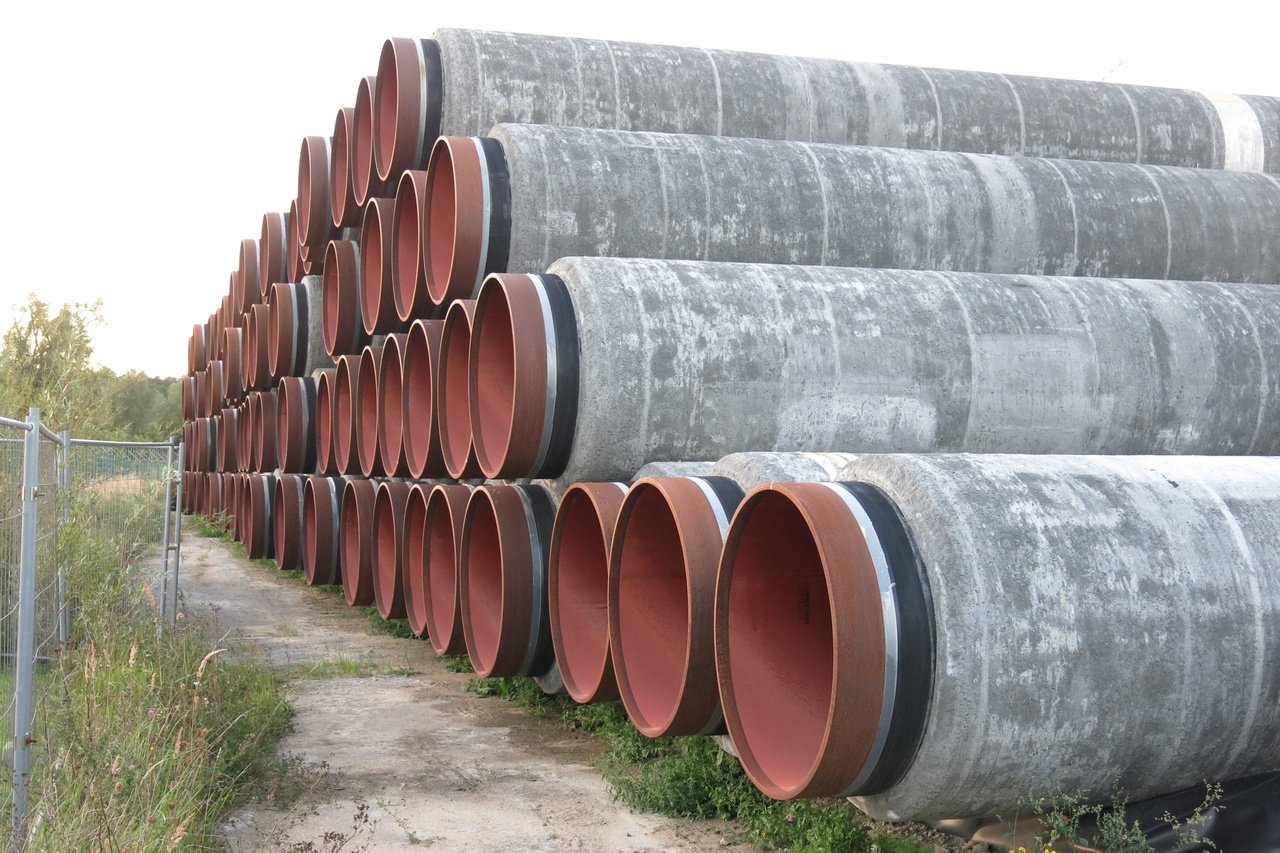Germany Vows Nordstream 2 Will Not be a Threat to EU Gas Supply
Pictured above are a stack of pipes used for Nord Stream 2. (Wikimedia Commons)
As Europe faces an energy deficiency, Germany and Russia are pressing for full approval of the regulations for Nord Stream 2, a gas pipeline that would transfer gas directly from Russia to Germany. Although Germany stated on October 26 that the project would not be a threat to Europe’s gas supply, critics argue that the pipeline would increase Western Europe’s dependency on Russian gas.
The pipeline is completed, and it awaits approval from German regulators before going to an EU board of regulators for its final approval. Owned by Gazprom, a large Russian state-owned oil company, Nord Stream 2 would bypass other gas lines in Eastern Europe, including Poland, Slovakia, and Ukraine.
The EU commission dedicated to the pipeline stated that Nord Stream 2 “could impede the development of an open gas market with price competition and diversified supply to the EU.” The commission fears that Nord Stream 2 does not align with the energy-focused foreign policy of member states and does not comply with the EU’s desire to achieve an energy union.
Ukrainian President Volodymyr Zelenskyy described Nord Stream 2 as a powerful geopolitical weapon for Russia, reminiscing on the Russian invasion and annexation of the Crimean Peninsula in 2014.
Earlier in October, Polish gas manufacturer and supplier PGNiG made a statement that argued that the current situation of the gas market in Europe “proves the risks for security of supplies created by the Nord Stream 2 project.”
The most outspoken opponents of the pipeline have not only been Eastern European countries. The United States was a vocal challenger to the pipeline, enacting sanctions on major parties involved on January 19, former President Trump’s last full day in office. However, the Biden administration lifted these sanctions on May 19 so as to not sour U.S.-Germany relations. German Chancellor Angela Merkel welcomed the decision.
A new deal made with Germany on July 21 included investment into green energy ventures in Ukraine and insurance that Russian gas would continue to flow through Ukraine past 2024. Furthermore, a joint statement provided by Germany and the U.S. expressed a strong conviction to “hold Russia to account for its aggression and malign activities by imposing costs via sanctions and other tools.”

